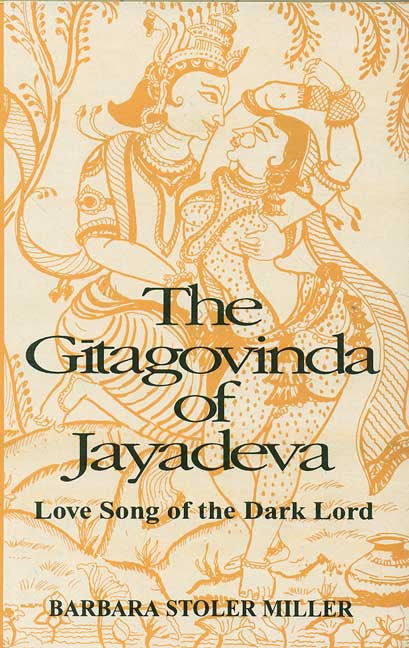The Gitagovinda of Jayadeva: Love Song of the Dark Lord
The Gitagovinda of Jayadeva: Love Song of the Dark Lord is backordered and will ship as soon as it is back in stock.
Couldn't load pickup availability
Jayadeva's dramatic lyrical poem Gitagovinda is a unique work in Indian literature and a source of inspiration in both medieval and contemporary Vaisnavism. It concentrates on Krsna's love with the Cowherdess Radha. Intense earthly passion is the example Jayadeva uses to express the complexities of divine and human love.
It describes the loves of Krsna and Radha in twelve cantos containing twenty-four songs. The songs are sung by Krsna or Radha or Radha's maid and are connected by brief narrative of descriptive passages. The appropriate musical mode and rhythm for each song are noted in the text. This poem is really a kind of drama, of the ragakavya type, since it is usually acted.
Critical acclaim of the poem has been high, but its frank eroticism has led many Indian commentators to interpret the love between Radha and Krsna as an allegory of the human soul's love for God. Learned and popular audiences in India and elsewhere have continued to appreciate the emotional lyricism the poem expresses in its variations on the theme of separated lover's passion.
About the Author:Â
Barbara Stoler Miller was Professor of Oriental Studies at Barnard College, Columbia University. She was a student of the late Professor W. Norman Brown. She had travelled widely throughout the Indian subcontinent and lived here to study Sanskrit and Indian music and art. Dr. Miller's other published works include The Hermit and the Love-Thief: Sanskrit Poems of Bhartrihari and Bilhana and Theater of Memory: The Plays of Kalidasa. She had also edited Exploring India's Sacred Art: Selected Writings of Stella Karmrisch published by Motilal Banarsidass.
-
Pages
-
Edition
-
Size
-
Condition
-
Language
-
Weight (kg)
-
Publication Year
-
Country of Origin
-
Territorial Rights
-
Reading Age
-
HSN Code
-
Publisher




